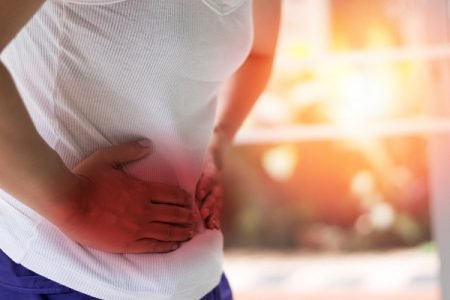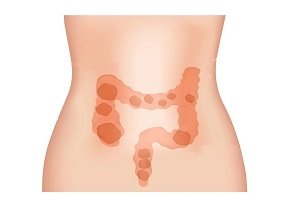Constipation Treatment: How to Relieve Constipation?
- Updated on: Jul 10, 2024
- 4 min Read
By
- Published on Sep 26, 2019


Treatment of Constipation: How to get rid of constipation?
Constipation is a condition characterized by fewer than three bowel movements in a week in addition to hard and dry stools that are difficult and painful to pass. In this condition, the patient is unable to completely empty the bowels.
Treatment for constipation depends upon the following factors:
- Cause of the problem
- Severity of the problem
- Duration (acute or chronic) of the problem
In the majority of cases, constipation resolves itself without any treatment. You may try home remedies and natural remedies for relieving from constipation.
But in severe cases, proper treatment is necessary for a balanced life.
How to stop constipation?
The treatment of constipation includes the following:
Bowel training
Bowel training is the most important aspect of treating constipation. Like any other activity emptying bowels also requires a dedicated piece of time. Enough time should be given to the activity without distractions, without stress and without feeling rushed.
In the morning, after getting up is the best time to empty the bowels. It is better if the process is carried out at the same time every day.
Dietary fiber intake
Fiber intake is essential for an easy and speedy passage of stool. It adds bulk to the stool. For every 1,000 calories in the diet, doctors recommend an intake of 14 g of fiber. There are many sources of fiber including:
- Beans
- Whole grains
- Brown rice
- Popcorn
- Nuts and seeds
- Baked potatoes
- Berries
- Oatmeal
- Bran cereal
- Vegetables
Fluid intake
Extra fluids in the body help keep the stool soft and easy to pass. Drinking enough water is always helpful for constipation. A glass of water can wash down the bowels easily. Water adds fluid to the colon and bulk to the stool, making bowel movements softer and easier. Other than water, there are other fluids that can also help in treating constipation including:
- Fruit juices
- Vegetable juices
- Clear soups
- Herbal teas
Regular exercise
Exercise helps keep the digestive tract healthy. It also increases muscles activity in intestines. Doctors always recommend a “five days in a week” plan. Some exercises which can help alleviate constipation are:
- Aerobics
- Swimming
- Stretching
- Yoga
But before starting with any of the above exercises, a clean slate from the doctor is very necessary. He is the one who can tell whether the patient is healthy enough to start an exercise program.
Laxatives for constipation
Laxatives are substances which are used either to loosen stool or to stimulate a bowel movement and provide relief from constipation pain.
There are a number of different types of laxative and each one effect the digestive system in a different way. Therefore choosing the correct laxative is essential. The different laxatives which are available over the counter are:
Fiber supplements
Fiber supplements can help get as much fiber the body needs for health. They are given to add bulk to the stool. They also improve the digestion. These include:
- Psyllium
- Calcium polycarbophil
- Methylcellulose fiber
When taking fiber supplements, it is important to keep the body hydrated to minimize the possibility of flatulence and a possible obstruction.
Stimulants
Stimulant laxatives provide an instantaneous relief from constipation. They work by stimulating the lining of the intestine which eventually accelerates the journey of the stool through the colon. Stimulants also hydrate the stool. These include:
- Correctol
- Bisacodyl
- Dulcolax
- Senna-sennosides oral
These laxatives decrease the patient’s natural ability to defecate and make him laxative-dependent. Therefore one should not make them a habit.
Osmotics
Osmotics are the hydrating substances that absorb fluid from the surrounding tissues of the intestine and hydrate it. This results in softer stools that are easier to pass. Examples include:
- Oral magnesium hydroxide
- Magnesium citrate
- Lactulose
- Polyethylene glycol
It is important to drink a lot of water with osmotic laxatives to decrease the possibility of gas and cramps.
Lubricant: What to take for constipation?
Lubricant laxatives make stools slippery and easy to pass. Mineral oil is used in these products. This oil adds a slick layer to the walls of the intestine and stops the stool from drying. Lubricants are simple and inexpensive laxatives. Some lubricants used are:
- Fleet
- Zymenol
These lubricants should not be continued for a longer time period because mineral oil can absorb vitamins from the intestine and does not allow other fat-soluble prescription drugs to be absorbed into the body.
When taking other medications or supplements, lubricants should be avoided.
Stool softeners
Stool softeners moisten the stool by drawing water from the intestines. Some of the stool softeners are:
- Docusate
- Colace
- Surfak
Enemas and suppositories
Sodium phosphate, soapsuds or tap water enemas are used to soften stool and produce a bowel movement.
Other medications for constipation relief (Constipation medicines)
If over-the-counter medications fail to treat chronic constipation, the doctor may recommend a prescription medication. These medications draw water into the intestines. They include:
- Lubiprostone
- Linaclotide
- Misoprostol
- Colchicine/probenecid
- OnabotulinumtoxinA
Biofeedback
Biofeedback is a behavioral therapy that is used to treat people with constipation, which do not respond to standard treatment. It involves working with a therapist who uses devices to help the patient to learn how to relax and tighten the pelvic muscles. Once the person knows when to relax the pelvic floor muscles for an easy and smooth defecation, he can get rid of the problem of constipation.
This process works in a series of steps including:
- A special tube (catheter) is inserted into the rectum. Catheter usually measures muscle tension in the rectum.
- The therapist then guides the patient to relax and contract the pelvic muscles alternatively.
- The muscles tension is measured by a machine.
- The therapist uses sounds or lights to help the patient to understand when he has relaxed his muscles.
This therapy can help the patient to restore a sense of personal control over the pelvic muscles. However, the benefits of biofeedback vary from person to person.
Surgery for constipation cure
What to do for constipation in case all options fail?
Surgery is the last option in the cure of constipation when no other treatment is found effective. It includes surgical removal of part of the colon. In the procedure, the problem segment of the anal sphincter or rectum is removed. This is the final and permanent solution for constipation.











